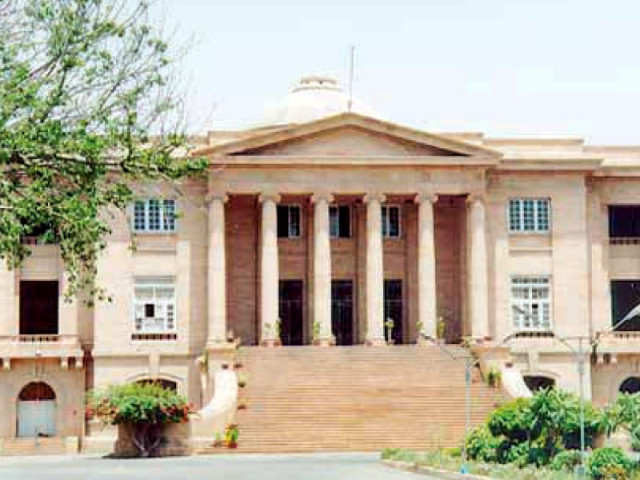SHC chief justice to hang up spurs today
Justice Ahmed Ali M Shaikh’s six-year term is marred by numerous controversies

Sindh High Court (SHC) Chief Justice Ahmed Ali M. Shaikh is set to retire today after more than six years in the position, a term marked by numerous controversies.
Surprisingly, Justice Shaikh has opted not to have a full court reference held in his honor, and the Sindh High Court Bar Association (SHCBA) has not organized a farewell dinner for him.
An anonymous member of the Sindh Bar Council (SBC) characterized Justice Shaikh's tenure as one marred by poor discipline and administration within the high court. During his leadership, factionalism within the high court reached its peak, and Justice Shaikh struggled to unify the SHC.
Another SBC member highlighted the tense relationship between the bar and the outgoing SHC chief justice throughout his term. Previously regarded as the top high court in Pakistan, the SHC faced a leadership crisis during Justice Shaikh's tenure, causing frustration among senior SHC judges, particularly due to the elevation of junior colleagues to the Supreme Court.
Read SHC seeks rape law implementation report
However, senior lawyers place blame on three former Chief Justices of Pakistan—Mian Saqib Nisar, Gulzar Ahmed, and Umar Ata Bandial—for the turmoil within the SHC. They accuse them of appointing junior judges to the apex court.
In April 2018, then Chief Justice Mian Saqib Nisar nominated Justice Munib Akhtar to the Supreme Court, bypassing CJ Ahmed Ali M Shaikh, Justice Irfan Sadaat Khan, and Justice Aqeel Ahmed Abbasi. Justice Akhtar was fourth on the seniority list of SHC judges.
Subsequently, former Chief Justice Gulzar Ahmed recommended another junior SHC judge, Justice Muhammad Ali Mazhar, for elevation to the Supreme Court, ignoring three senior colleagues of Justice Mazhar. Although the majority members of the Judicial Commission of Pakistan (JCP) approved Justice Mazhar's nomination, Justice Bandial had raised concerns about the SHC chief justice's lack of reported judgments over the last three years.
Justice Bandial suggested that Justice Shaikh deserved an opportunity to be elevated to the Supreme Court, given various factors, including his ethnic background. However, after a few months of Justice Mazhar's appointment, then CJP Gulzar Ahmed recommended Justice Shaikh as an ad-hoc SC judge. Although the majority of the JCP members approved his nomination, Justice Shaikh declined to take the oath.
There was a difference of opinion among government legal experts regarding the consequences of a presidential notification about Justice Shaikh's appointment as an ad-hoc SC judge after his refusal.
The former Attorney General for Pakistan, Khalid Jawed Khan, argued against applying Article 206 (2) of the Constitution in this case. He contended that a high court judge who refuses to become an ad-hoc judge of the SC should be deemed to have retired from his office.
On the other hand, the former law minister, Dr. Farogh Naseem, contended in the JCP meeting that the article applied to Justice Shaikh's case. Despite these legal debates, the bar strongly supported Justice Shaikh's decision not to accept the ad-hoc position at the SC.
Additionally, former CJP Gulzar Ahmed entertained a constitutional petition filed against the alleged illegal hiring of staff at the SHC during Justice Shaikh's term. A special bench led by Justice Bandial was constituted to hear the petition, but the matter was not pursued after Justice Gulzar's retirement.
In the current year, Justice Qazi Faez Isa suggested Justice Shaikh's name for elevation to the apex court, but the majority of the JCP members did not endorse his suggestion.A former SHCBA president described Justice Shaikh's term as poor in terms of SHC's administration and discipline. He also noted that previous Chief Justices had nominated highly qualified SHC judges to the apex court during their tenures.



















COMMENTS
Comments are moderated and generally will be posted if they are on-topic and not abusive.
For more information, please see our Comments FAQ